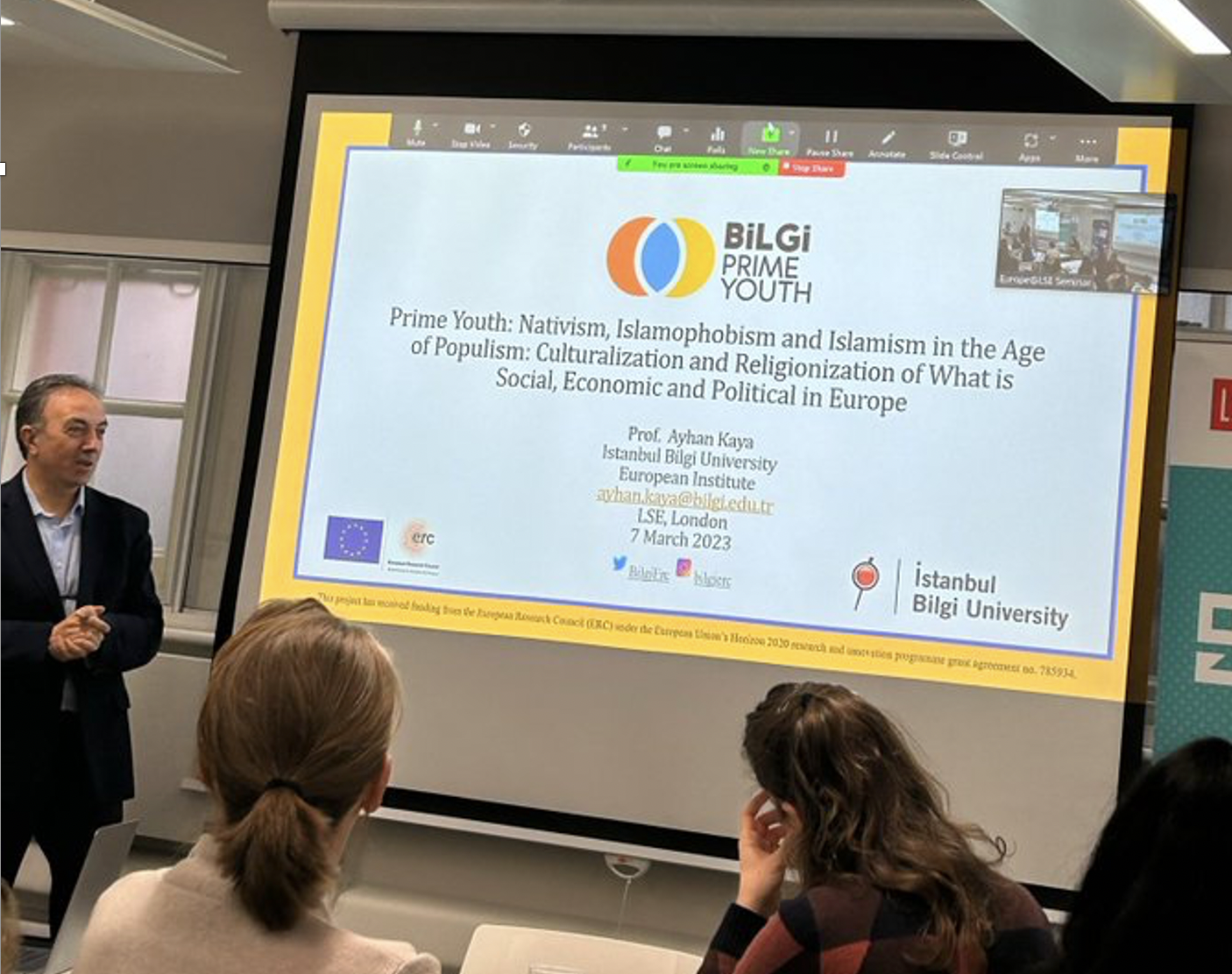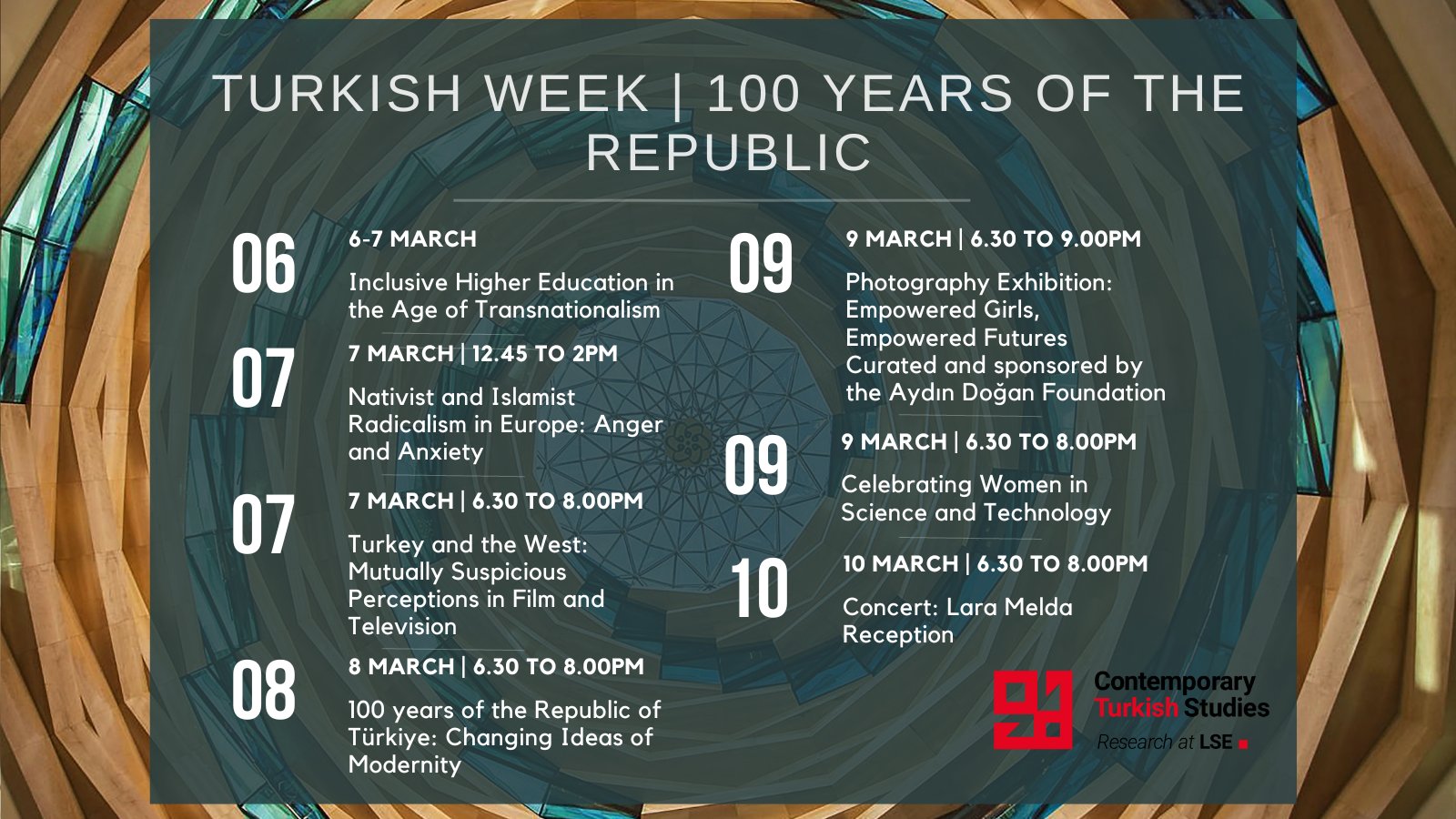Prof. Ayhan Kaya presented the main findings of the PRIME Youth Project at the London School of Economics (LSE) European Studies

Prof. Dr. Ayhan Kaya delivered a speech at the London School of Economics (LSE) European Studies in London titled “Nativist and Islamist Radicalism in Europe: Anger and Anxiety”. The Seminar was held both offline and online with the participation of more than fifty participants composed of post-doc students and scholars specialized in European Studies. The Seminar was moderated by Friedrich Püttmann, a Ph.D. candidate at the LSE, and the discussant was Assoc. Prof. Dr. Katerina Dalacoura, professor of International Relations at the LSE’s Political Science Department.
Based on the findings of the ERC AdG research, Prof. Kaya challenged the scholarship that has so far studied European youth in ethno-culturally, and religio-politically divided separate clusters, such as “migrant-origin” and “native” youths. In his talk was an attempt to lay the groundwork by arguing that European youth respond differently to the challenges posed by contemporary flows of globalisation, such as deindustrialisation, structural exclusion, and socio-economic, political, spatial and psychological forms of deprivation and humiliation. Challenging the current uses of the term radicalism interchangeably with extremism, terrorism, fundamentalism, and violence, he too radicalism as a possible quest for the democratisation of democracies rather than a pathological issue. The talk was full of anecdotes from the field research to explain the malaise of both ‘native’ and ‘immigrant origin’ youth simultaneously through a single scientific lens by de-culturalising and de-religionising what is socio-economic, political, and psychological in substance.
The discussant, Assoc. Prof. Katerina Dalacoura made her intervention by focusing on the socio-economic and local root causes of radicalisation of youth groups in Europe, and underlined the relational dynamics of the processes of co-radicalisation of European youth in the sample of the research, and asked Prof. Kaya to elaborate on that. In his answer, Prof. Kaya argued that co-radicalisation between Islamist and Islamophobist groups has become prevalent since 9/11, which had a deepening impact on the civilizational rhetoric across the world. There were a few questions from the audience about the translocality, temporality and historicity of the radicalisation processes in Europe, which were also responded to by Prof. Kaya.

More information about the event:

